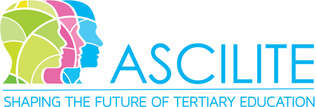1 August 2012: Crowd-sourcing exam questions with PeerWise
Presenter: Paul Denny (University of Auckland, New Zealand)
Hosted by Professor Geoff Crisp, RMIT University and Dr Mathew Hillier, University of Queensland, Australia starting 07:00AM UST/GMT. Duration 1 hour, 22 minutes.
Creating effective multiple-choice questions (MCQs), particularly designing plausible alternatives that target misconceptions, is time-consuming and challenging and requires very good content knowledge. These demands can make the question authoring process a useful activity for students, and research in some disciplines has shown this to be an effective learning technique. Using technology to support such an activity in class not only simplifies the authoring process, but it makes it possible for students to share, answer and critique one another's questions.
In this seminar the freely-available PeerWise tool was demonstrated. The tool enables students to build an annotated repository of exam-style MCQs. PeerWise leverages student familiarity with social software and Web 2.0 and incorporates basic game elements such as a scoring and an achievement system as motivators. An opportunity for hands-on gave participants an opportunity to experiment with the interface and view typical examples of the real-time feedback that is produced. In addition, research examining student perceptions, repository quality and the relationship between student activity and exam performance was summarised. PeerWise is extremely simple for instructors to adopt and has been used in more than 300 institutions around the world. It takes just moments to set up a new repository and manage student access, and this process was discussed at the end of the session.
Further information:
- Session slides TA_webinar_1_AUG_2012_Paul_Denny_PeerWise.pptx
- The PeerWise site http://peerwise.cs.auckland.ac.nz/
- PeerWise resources for instructors http://peerwise.cs.auckland.ac.nz/docs
- Other resources
- An additional example was mentioned in the session. The attached slides by Lesley Nicolson and Amanda Skyes from University of Glasgow were developed to prepare Veterinary students for a self directed learning assignment in a biomolecular science course. http://www.slideshare.net/amanda_sykes/peerwise-scaffolding-for-biomolecular-science-vet-med-glasgow-university
- Denny, P. C., Luxton-Reilly, A. J., & Hamer, J. (2008). The PeerWise system of student contributed assessment questions. In Simon, & M. Hamilton (Eds.), Conferences in Research and Practice in Information Technology Vol. 78 (pp. 69-74). Wollongong, NSW, Australia
http://crpit.com/confpapers/CRPITV78Denny.pdf. - Denny, P., Luxton-Reilly, A., Hamer, J., & Purchase, H. (2009). Coverage of Course Topics in a Student Generated MCQ Repository. In ITICSE 2009: Proceedings of the 2009 ACM SIGCSE annual conference on innovation and technology in computer science education (pp. 11-15).
http://dx.doi.org/10.1145/1595496.1562888. - Denny, P. C., Hanks, B., & Simon, B. (2010). PeerWise: Replication Study of a Student-Collaborative Self-Testing Web Service in a U.S. Setting. In SIGCSE '10 Proceedings of the 41st ACM technical symposium on Computer science education (pp. 421-425). Milwaukee, Wisconsin, USA: ACM
http://dx.doi.org/10.1145/1734263.1734407.
You Tube session recording
A screen cast of the session.
Start playing via You Tube: http://www.youtube.com/watch?v=O1X-v5S5vCU (You can choose to view in standard definition or high definition and in full screen mode).










